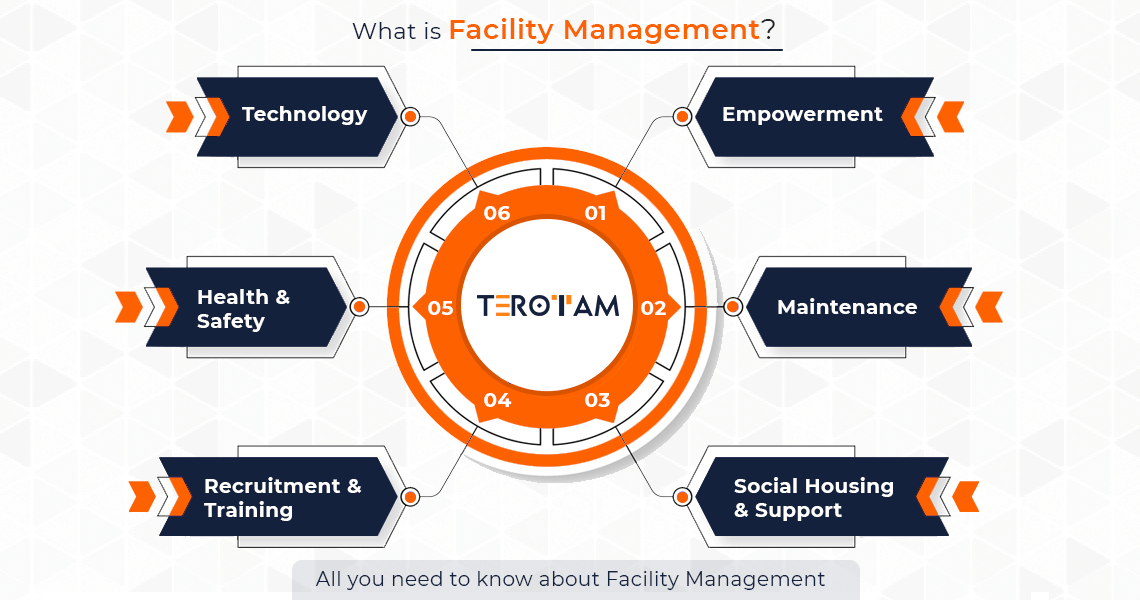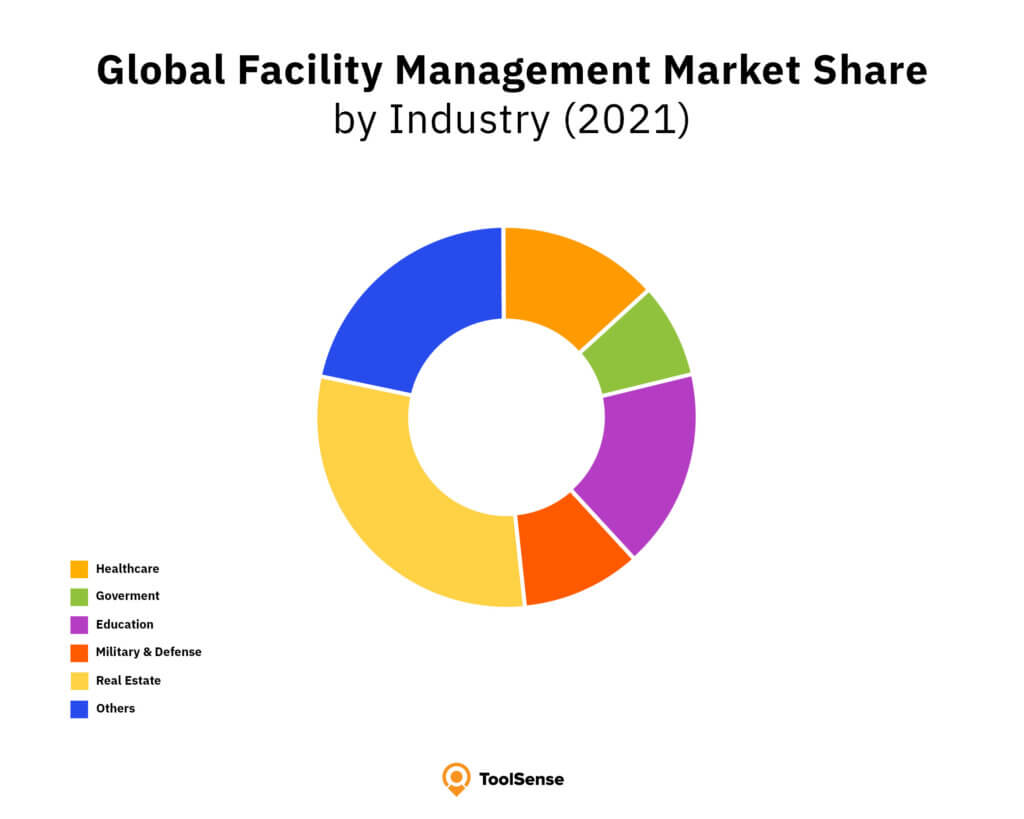Facility Management-- Crucial Providers for Efficient Procedures
Secret Trends Shaping the Future of Facility Administration in 2024
As we look ahead to 2024, the landscape of facility administration is poised for considerable change, driven by numerous key trends. The combination of clever building technologies and a change towards data-driven decision-making assurance to improve operational efficiency while prioritizing sustainability in practice.
Smart Building Technologies

Smart building modern technologies include a large variety of systems, consisting of intelligent lighting, heating and cooling controls, and protection systems. By incorporating these systems, facility managers can keep an eye on and change specifications in real-time, resulting in substantial decreases in power waste and functional prices. For circumstances, smart sensors can find occupancy levels and change illumination and temperature level accordingly, guaranteeing that energy is just made use of when essential.
In addition, these innovations help with improved information collection, allowing organizations to track use patterns and recognize possibilities for additional improvements. The application of wise structure technologies not just adds to sustainability goals however also creates much healthier job settings that can enhance employee performance and contentment.
As we relocate into 2024, the fostering of wise building modern technologies will likely accelerate, showing a broader shift towards even more intelligent, receptive, and lasting facility management methods.
Data-Driven Decision Making
Progressively, companies are leveraging data-driven decision making to enhance facility management practices. By taking advantage of data analytics, facility supervisors can derive actionable insights that dramatically boost functional effectiveness and resource allowance. The integration of advanced technologies, such as IoT sensing units and real-time tracking systems, allows the collection of vast quantities of information on building performance, occupancy rates, and power consumption.
This riches of info permits center managers to determine patterns, forecast maintenance requirements, and proactively address concerns before they escalate. Anticipating analytics can anticipate devices failures, decreasing downtime and repair expenses. In addition, information visualization tools assist in far better interaction amongst stakeholders, making sure that informed choices are made collaboratively.
Moreover, data-driven techniques improve strategic preparation by allowing center managers to analyze the efficiency of current practices and make notified choices relating to financial investments in modern technology or framework. As organizations significantly focus on operational excellence, data-driven decision making is positioned to become a cornerstone of effective center administration methods in 2024 and past. Ultimately, the capability to take advantage of data properly will encourage companies to develop extra efficient, effective, and resilient facilities.
Sustainability and Eco-friendly Practices
The focus on data-driven decision making normally aligns with the expanding concentrate on sustainability and environment-friendly practices within center monitoring. As companies significantly focus on environmental duty, center managers are leveraging analytics to maximize source use, minimize waste, and decrease carbon impacts. This strategic technique allows the assimilation of energy-efficient systems, such as LED illumination, clever HVAC controls, and renewable resource resources right into facility procedures.
In addition, the application of sustainable practices prolongs past power usage. Center managers are advertising and adopting environmentally friendly products recycling campaigns to create a round economic situation within their facilities. This not only boosts the ecological account of the company yet also promotes a society of sustainability amongst employees.
Compliance with environmental policies is another essential aspect driving the adoption of eco-friendly methods. By making use of information analytics, facility managers can keep an eye on compliance metrics and identify locations for renovation, guaranteeing adherence to international and neighborhood sustainability standards.
Crossbreed Job Versions
A significant shift towards crossbreed job versions is improving the landscape of center administration in 2024. This paradigm incorporates in-office and remote job, demanding a reevaluation of area usage, resource allocation, and employee engagement approaches. Organizations are significantly acknowledging the value of versatile work spaces that deal with diverse needs and choices.
Center supervisors should adjust by carrying out functional office designs that support collective initiatives while giving locations for concentrated work. This includes the assimilation of technology to help with seamless interaction and partnership among in-office and remote employees. Smart building remedies, outfitted with analytics and sensing units, enable real-time surveillance of space usage, making it possible for companies to enhance their environments successfully.
Furthermore, hybrid job designs highlight the demand for reliable facility management that prioritizes employee experience. This encompasses not just modern technology and room layout however likewise the development of plans that promote a well balanced work-life dynamic. As business navigate this transition, the role of center management becomes crucial in developing a nimble workplace that cultivates efficiency and drives organizational success. read this article Fundamentally, the hybrid job version is revolutionizing center monitoring, urging a proactive method to meet the developing demands of the workforce.
Boosted Occupant Wellness
As organizations accept hybrid work models, an increased focus on owner health is ending up being important to facility management approaches. Facility Management. This change acknowledges that a pleased and healthy labor force straight impacts performance and retention prices. Facility supervisors are now focusing on atmospheres that promote psychological and physical health, incorporating elements such as all-natural lighting, biophilic layout, and easily accessible wellness resources

Technology plays an essential role in this evolution. Smart building systems can monitor environmental factors and readjust setups in real-time, making sure ideal comfort my company levels - Facility Management. Comments mechanisms, such as occupancy sensors and employee surveys, permit facility supervisors to continuously improve wellness campaigns based on passenger requirements.

Conclusion
In 2024, the future of center administration will certainly be significantly affected by the assimilation of smart structure modern technologies and data-driven decision-making, promoting boosted functional efficiency. Sustainability efforts will certainly focus on environmentally friendly methods, while the emergence of hybrid work designs will certainly necessitate flexible office layouts. An increased emphasis on owner health via advanced Heating and cooling systems and biophilic style will contribute to healthier work atmospheres. These patterns jointly highlight the advancing landscape of center monitoring in feedback to modern obstacles and possibilities.
Center supervisors are advertising and embracing environment-friendly materials recycling campaigns to produce a circular economy within their centers.A considerable shift in the direction of crossbreed work models is improving the landscape of facility management in 2024.Furthermore, hybrid job designs highlight the need for reliable facility management that prioritizes staff member experience.As companies embrace hybrid job designs, a important link heightened emphasis on resident health is ending up being essential to center administration strategies.In 2024, the future of center management will certainly be substantially influenced by the combination of smart structure technologies and data-driven decision-making, cultivating improved functional efficiency.